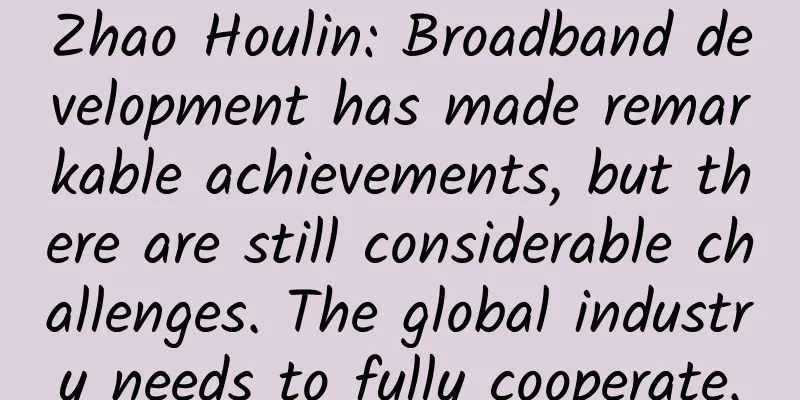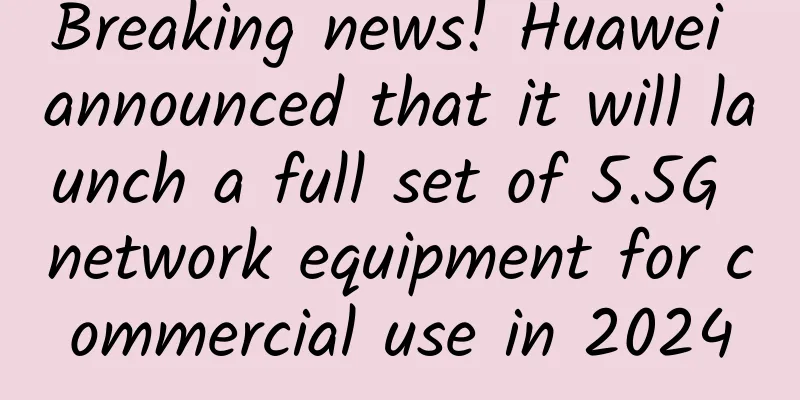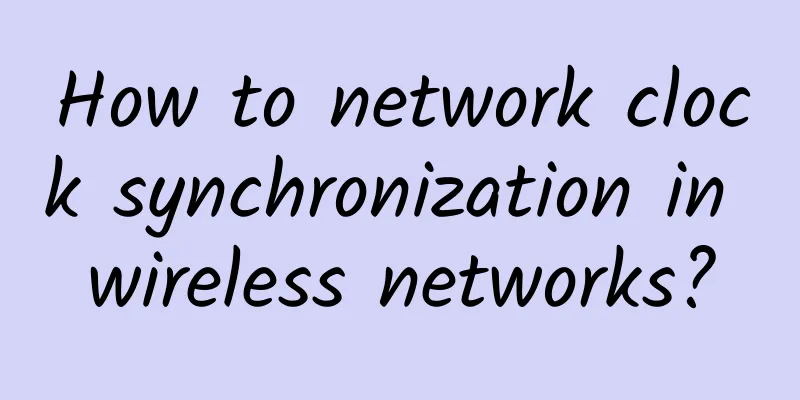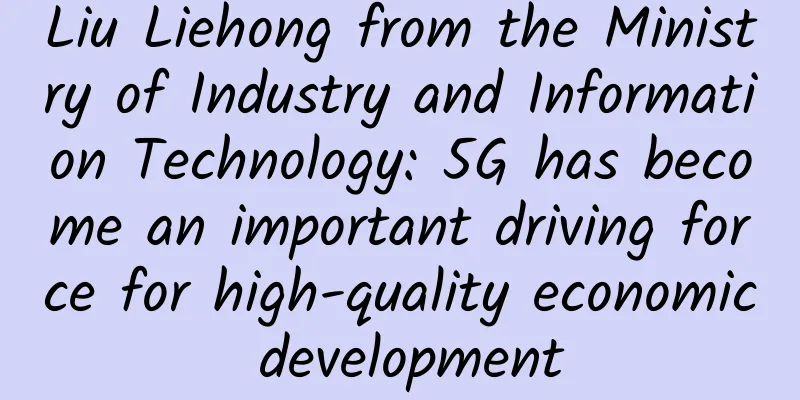Zhao Houlin: Broadband development has made remarkable achievements, but there are still considerable challenges. The global industry needs to fully cooperate.

|
The digital divide has not yet disappeared, and the demand for connectivity continues to grow rapidly. The development of the ICT broadband industry is facing a series of challenges. At the 6th Global Ultra-Broadband Forum (UBBF 2020) which opened today, ITU Secretary-General and Vice Chairman of the United Nations Broadband Commission Zhao Houlin called on the global industry to fully cooperate to accelerate broadband development and bridge the gap. He said that over the past decade, the ICT broadband industry has made great progress in expanding global connectivity and enriching our lives. In the global fight against the epidemic, the importance of ICT broadband has become more prominent and has become a key link in effectively responding to the crisis: "You can imagine what the situation would be like if we did not have such broadband infrastructure and services today."
However, the huge digital divide has not disappeared. There are still 3.6 billion people in the world who have not yet accessed the Internet. The global Internet penetration rate is only about 50%, and the overall growth rate is slowing down. According to the ITU assessment, by 2030, in order to achieve affordable services and universal connectivity, 700,000 kilometers of backbone optical fiber transmission infrastructure will need to be laid. In addition, broadband development faces a series of other problems and challenges, including the lack of effective guidance on industry policies, slow network deployment, regional imbalance, long investment return cycle, lack of a clear path for upgrading networks, and the need to involve new stakeholders in network infrastructure construction. Zhao Houlin pointed out that in the face of these challenges, full collaboration is needed from the global industry. First, all industries around the world should work together to strengthen ICT broadband infrastructure investment, which can effectively enhance economic resilience and promote economic growth. If ICT investment is dispersed, investment departments act independently, and even fail to effectively coordinate within the same country, then we will have to face the risk of inefficiency and waste of resources, not only sacrificing time, but also losing the opportunity to increase ICT investment. Secondly, governments should increase the priority of broadband infrastructure development and systematically formulate relevant investment strategies and policies. So far, ICT investment around the world is mainly completed by private enterprises, accounting for more than 90% of all investments. However, the government should demonstrate its key role and the role it plays in guiding broadband construction. Through reasonable broadband development goals, it can create an investment environment that is conducive to ultra-broadband investment and friendly to private investors, which will greatly promote the progress of broadband infrastructure construction. Finally, cooperation and solidarity are essential during the global recovery period. The United Nations Global Assembly adopted a resolution on the COVID-19 pandemic, calling for strengthened global cooperation and solidarity to contain, eliminate and overcome the pandemic and its adverse effects. The importance of broadband and digital infrastructure, technology and services during this pandemic is self-evident. To achieve efficient investment in these areas, it is essential to promote cooperation and solidarity among all stakeholders including governments, operators, equipment manufacturers, investors and vertical industries. "We hope that the entire ICT broadband industry will unite to strengthen ultra-broadband infrastructure, promote inclusive recovery and development, and leave no one behind in the process of achieving sustainable development in 2030. I hope that through everyone's efforts, we can push broadband construction to a new stage and benefit all mankind. In this regard, I particularly commend Huawei for its outstanding contributions over the years, and I also appreciate the unremitting efforts of all forum participants. I hope that everyone will continue to support ITU's efforts in this regard." Zhao Houlin said at the end of his speech. |
<<: The iPhone 12 finally uses 5G, but is it really too late?
>>: Huawei's Ryan Ding: Working together to create the most successful 5G
Recommend
Japan's strategy to compete for world 6G technology
In March of this year, when the COVID-19 epidemic...
An article explains the detailed process of SSL handshake protocol
[[274498]] Overview SSL (Secure Socket Layer) is ...
Summary of precautions and common problems in the use of twisted pair cables in weak current engineering
Twisted pair wire is the most commonly used trans...
Huawei and its medical industry partners promote 5G smart medical integration cooperation
In order to further respond to the national new i...
A table to understand the difference between 5G and Wi-Fi 6
[[415279]] Spectrum Type Traditionally, cellular ...
HostXen recharges 100 yuan and gets 10 yuan / recharges 5000 yuan and gets 618 yuan, US/Japan/Hong Kong 6G memory monthly payment starts from 70 yuan
HostXen sent an event during this year's 618....
What is the principle of WebSocket? Why can it achieve persistent connection?
[[396397]] To better understand WebSocket, we nee...
The Winter Olympics is about to open, and the on-site communication network technology is deeply revealed!
In 11 days, the world-renowned Beijing Winter Oly...
iWebFusion: $99/month - Dual E5-2670/128G memory/500G SSD hard drive/20TB monthly traffic, multiple data centers in Los Angeles and other places
iWebFusion (iWFHosting) is a site under the forei...
Learn about the last of the four types of switch messages in one minute: known unicast
Continuing from the previous article "Learn ...
RAKsmart adds Hong Kong large bandwidth and 20% discount promotion, US/Hong Kong/Japan cluster server 258 IP
RAKsmart has added a new Hong Kong high-bandwidth...
DAGW: Exploration and Practice of Data Aggregation Gateway
Business Background Bilibili is a video community...
WiFi beginners guide: 4 things you need to know
Gone are the days of firing up our computers, plu...
What’s so special about Wi-Fi 6?
What is Wi-Fi 6? Wi-Fi 6 is the alias given by th...
The potential of smart education continues to be released, and 5G brings three major boosts
Education is the foundation of a century-long pla...









